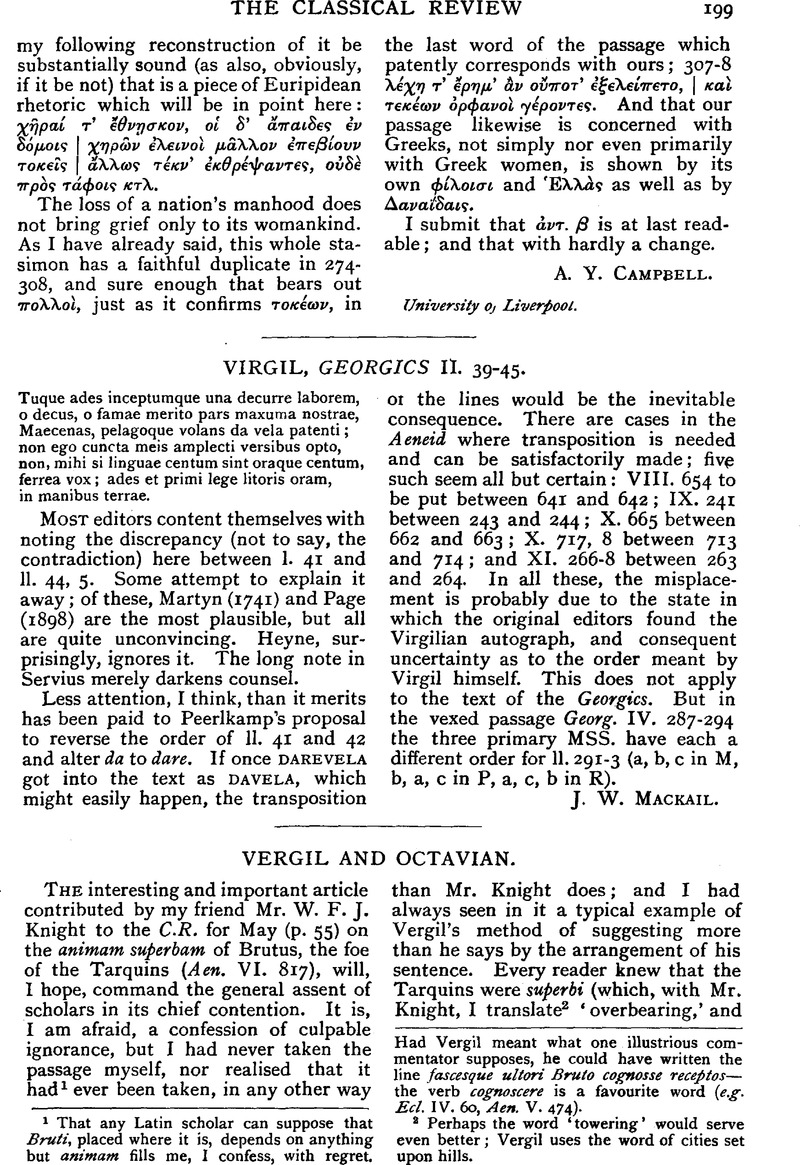No CrossRef data available.
Article contents
Vergil and Octavian
Published online by Cambridge University Press: 27 October 2009
Abstract

- Type
- Review Article
- Information
- Copyright
- Copyright © The Classical Association 1932
References
page 199 note 1 That any Latin scholar can suppose that Bruti, placed where it is, depends on anything but animam fills me, I confess, with regret. Had Vergil meant what one illustrious commentator supposes, he could have written the line fascesque ultori Bruto cognosse receptos—the verb cognoscere is a favourite word (e.g. Ecl. IV. 60, Aen. V. 474).
page 199 note 2 Perhaps the word ‘towering’ would serve even better; Vergil uses the word of cities set upon hills.
page 200 note 1 See Cic. Att. V. 21; VI. 1 and 2.
page 200 note 2 On this darker side of the Dictator's strange personality, on which Mommsen and the English scholars who have followed him are always silent, see ch. 1 of Makers of Europe (Harvard University Press, 1931).
page 200 note 3 Vergil's Messianic Eclogue (1907), p. 47; and Warde Fowler's Death of Turnus (1919), p. 156—to go no further back.
page 201 note 1 See e.g. a painting from the ‘Francois tomb’ in Poulsen, , Etruscan Tomb Painting, p. 12Google Scholar, reproduced in John Rylands Libr. Bull. xvi. (1932), p. 390.
page 201 note 2 xxii. 57. 6.
page 201 note 3 Dio Cass. xliii. 27.
page 201 note 4 British Academy Proceedings, 1931 (Hertz Annual Lecture on Aspects of Art, delivered in October, 1930).
page 202 note 1 And this is the only time that such an epithet is applied to him in the whole twelve Books, though there is furor as well as ira when he sees that Troy is in flames (II. 316), and later, when he catches sight of Helen in hiding (588). But Venus (in other words, his own gentler instincts) calms his mad desire for vengeance.
page 202 note 2 Sueton. Aug. 13.
page 202 note 3 C.R., 1932, P. 70.
page 202 note 4 Since this article was written, Professor Tenney Frank in his Master-Mind Lecture to the British Academy on June 8, 1932, has admirably maintained the same view. The evidence he brings of the influence of Cicero upon the American constitution (Proc. of the Br. Ac. of that date, p. 4.) is especially interesting.




